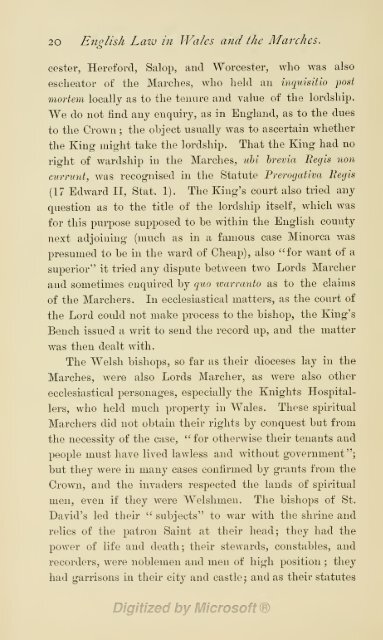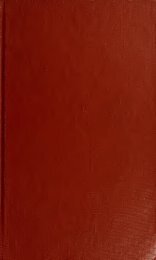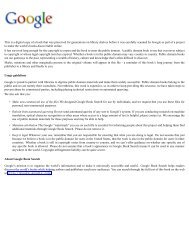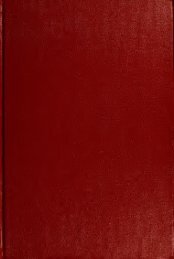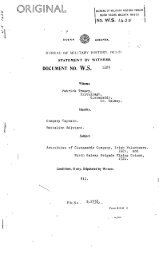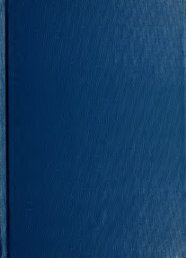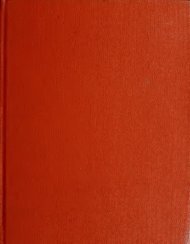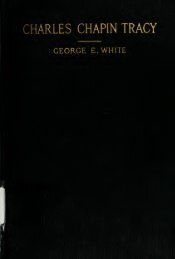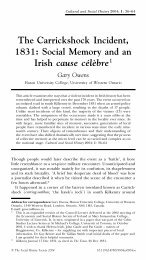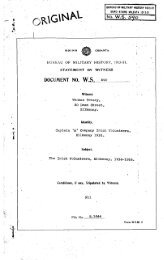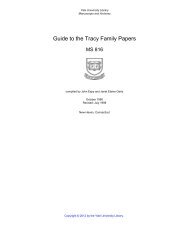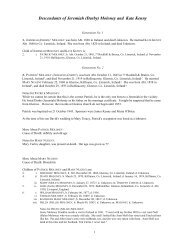Y Cymmrodor. v. XIV. 1901.
Y Cymmrodor. v. XIV. 1901.
Y Cymmrodor. v. XIV. 1901.
You also want an ePaper? Increase the reach of your titles
YUMPU automatically turns print PDFs into web optimized ePapers that Google loves.
20 Enolish Law in Wales and the Marches.<br />
&<br />
cester, Hereford, Salop, and Worcester, who was also<br />
escheator of the Marches, who held an inauisitio post<br />
mortem locally as to the tenure and value of the lordship.<br />
We do not fìnd any enquiry, as in England, as to the dues<br />
to the Crown ; the object usually was to ascertain whether<br />
the King ìnight take the lordship. That the King had no<br />
rig-ht of wardship in the Marches, ubi brevia Regis non<br />
currunt, was recognised in the Statute Prerogata Regis<br />
(17 Edward II, Stat. 1). The King's court also tried any<br />
question as to the title of the lordship itself, which was<br />
for this purpose supposed to be within the English county<br />
next adjoining (much as in a fanious case Minorca was<br />
presumed to be in the ward of Cheap), also "for want of a<br />
superior" it tried any dispute between two Lords Marcher<br />
and sometimes enquired by auo warranto as to the claims<br />
of the Marchers. In ecclesiastical matters, as the court of<br />
the Lord could not make process to the bishop, the King's<br />
Bench issued a writ to send the record up, and the matter<br />
was then dealt with.<br />
The Welsh bishops, so far as their dioceses lay in the<br />
Marches, were also Lords Marcher,<br />
as were also other<br />
ecclesiastical personages, especially the Knights Hospital-<br />
lers, who held much property in Wales. These spiritual<br />
Marchers did not obtain their rights by conquest but from<br />
the necessity of the case, "for otherwise their tenants and<br />
people must have lived lawless and without government";<br />
but they were in many cases confirmed by grants from the<br />
Crown, and the invaders respected the lands of spiritual<br />
men, even if they were Welshmen. The bishops of St.<br />
David's led their " subjects" to war with the shrine and<br />
relics of the patron Saint at their head; they had the<br />
power of life and death; their stewards, constables, and<br />
recorders, were noblemen and men of high position ; they<br />
had garrisons in their city and castle ; and as their statutes


